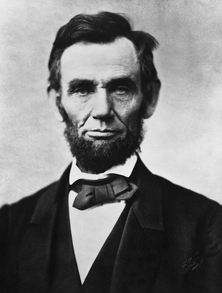
Connson Locke (London School of Economics and Political Science) and Cameron Anderson (University of California, Berkley) wondered how people who appear to be highly confident affect the behavior of others, specifically in decision-making. Does a person who appears to be highly confident “cause others to participate less, or to suppress their own ideas and opinions’ (p. 42). Studies have suggested that people who appear to be highly confident are more likely to be seen as competent -- people who know their stuff --regardless of whether this is true.
In a series of three different experimental studies Locke and Anderson examined this subject, the details of which will not be discussed here. What did they find?
- On decision-making tasks, participants viewed the highly confident person as more competent and participated less.
- Even when the highly confident person had incorrect opinions, participants deferred.
- When highly confident people sought others’ ideas, the participants were more likely to participate, off-setting the effect of perceived competence.
My take-aways:
1. We often do see people as leaders, or potential leaders, who carry themselves well, speak with confidence, and look at us while talking. We also tend to select and promote these people into positions of power and leadership. Not all perhaps, but many. If we think honestly about it, we may find we have a stereotype of the leader, and it is a stereotype that many others also may have. What are the implications for those of us who do not fit the stereotype?
2. For the leaders amongst us who appear confident to others, there is an important point here. Recognize you may be perceived as more competent or smarter than you are. You may intimidate others simply by being yourself and suppress participative decision-making. The solution: Genuinely seek others’ opinions and ideas, admitting you do not have all the answers. That is being a leader.
Locke, C. C., & Anderson, C. (2015). The downside of looking like a leader: Power, nonverbal confidence, and participative decision-making. Journal of Experimental Social Psychology, 58, 42-47.
Image of “Abraham Lincoln” by Alexander Gardner, 1863. Public domain. This work is in the public domain in the United States, and those countries with a copyright term of life of the author plus 100 years or less. This file has been identified as being free of known restrictions under copyright law, including all related and neighboring rights. Obtained from: http://commons.wikimedia.org/wiki/File:Abraham_Lincoln_head_on_shoulders_photo_portrait.jpg
© John Ballard, PhD, 2018. All rights reserved.
_________________________
Decoding the Workplace “deals with principles and practices that are timeless . . . Is this a must-have for managers and would-be managers? Yes.” Academy of Management Learning & Education, June, 2018. Now also available as an audiobook.
 RSS Feed
RSS Feed